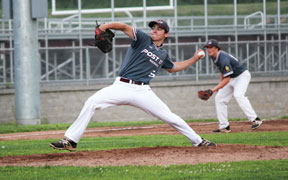>>Pervasive optimism that the college football season would start and finish on time has given way to nervousness as programs continue to see players with COVID-19 infections during voluntary workouts and multiple states have either slowed down or reversed some aspects of their reopening plans due to spiking case numbers. The idea of delaying college football to the spring, which was dismissed as a last resort a few months ago, is being revived in some corners as a legitimate option to buy time and give programs more tools to manage a situation that many administrators privately admit is unwieldy and uncertain. Meanwhile, some FBS conferences are actively engaged with banks on opening up lines of credit to guard against lost revenue, a key acknowledgment that schools fear a potential revenue wipeout this fall.<<
>>Contrary to popular belief among COVID-19 deniers, this isn’t about the death rate. Everyone recognizes that young, healthy athletes are highly unlikely to die if they contract the virus. But even if you can temporarily put aside the ever-present concern that a small number could have bad outcomes or the unknown long-term effects, the contagiousness of the virus and the issue of asymptomatic spread presents a practical problem of how you can coach, prepare and play without needing to isolate significant portions of your team.<<


